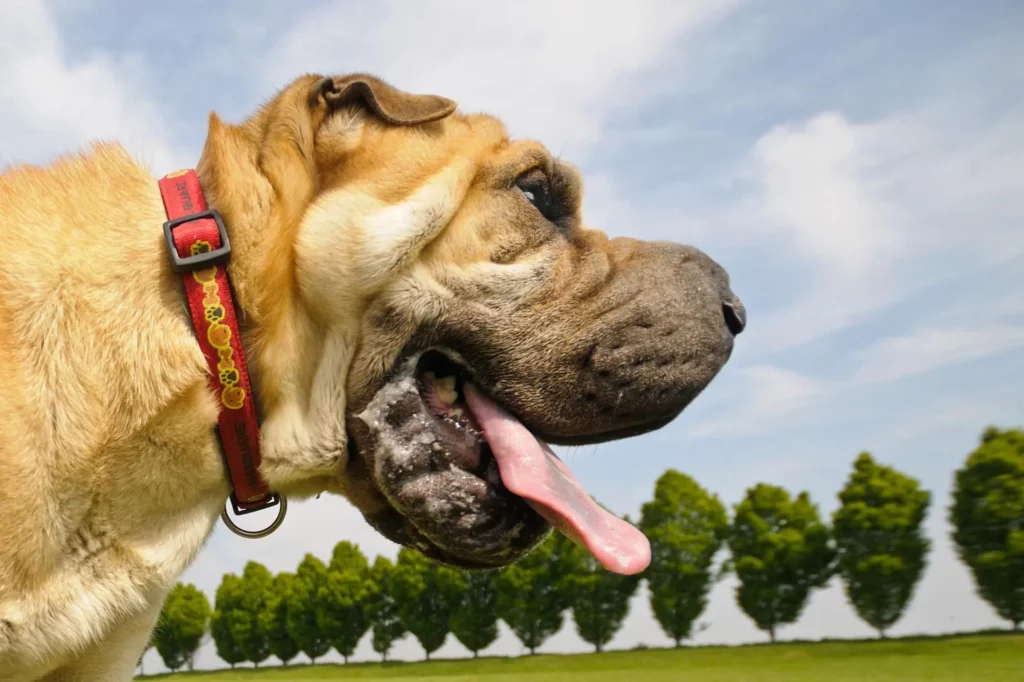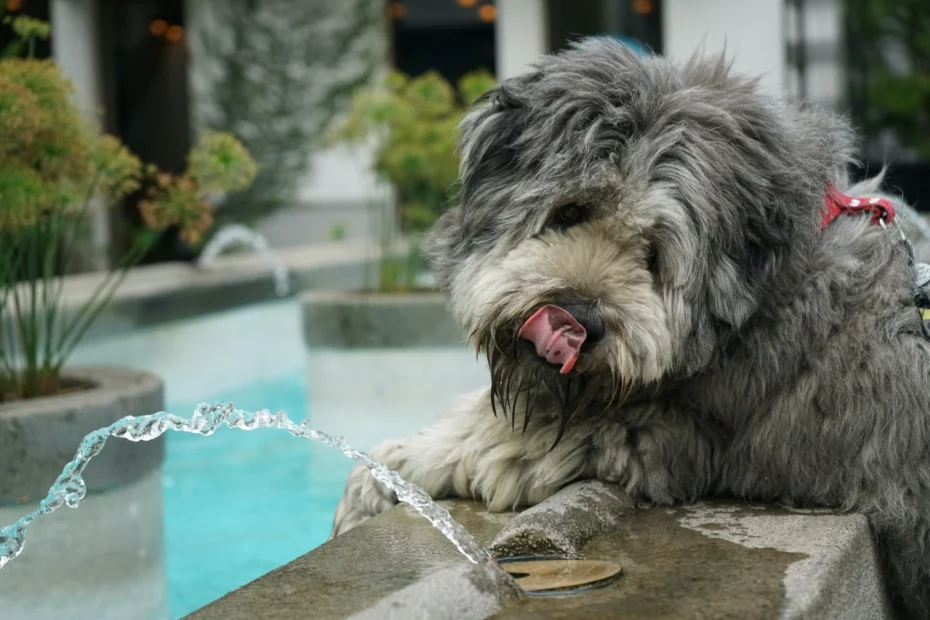There is no one-size-fits-all answer to this question, as the best home remedy for a dog that is drooling excessively will depend on the underlying cause of the problem. However, please find below for some home remedies for dog drooling .
There is limited scientific research on the topic of dog drooling, likely due to the fact that it is not considered a serious medical condition. However, there are a few studies that have looked at the prevalence of drooling in dogs and the possible causes.
One study, which was published in the journal Applied Animal Behaviour Science, found that 12.5% of dogs drooled excessively, with the most common reasons being excitement or anxiety. The study also found that smaller breeds of dogs were more likely to drool than larger breeds.
Another study, which was published in the Journal of Veterinary Behavior, found that 8.5% of dogs were classified as “droolers” and that the most common reasons for drooling were excitement (42%), anxiety (32%), and pain (11%).
Based on these studies, it is clear that drooling is a relatively common problem in dogs, with excitement or anxiety being the most common causes. If your dog is drooling excessively, it is best to consult with your veterinarian to rule out any underlying medical conditions and to discuss possible treatment options.

What are the home remedies for dog drooling?
Keeping the dog’s mouth clean and free of debris
The best home remedy for dog drooling is to prevent it from happening in the first place. Achievable by keeping your dog’s mouth clean and free of debris. You can use a toothbrush to brush your dog’s teeth, or you can give them special dog treats that help clean their teeth. Make sure your dog has plenty of fresh water to drink. Give your dog a toy to chew on, such as a rope toy or a Kong toy. This will help keep their teeth clean and their gums healthy.
Make sure your dog has plenty of fresh water to drink
You should always make sure that your dog has access to plenty of fresh water. May do this by keeping a water bowl filled with fresh water in your dog’s crate or in a place where they spend a lot of time. You should also make sure that you take your dog for walks so that they can get some exercise and drink some water while they are out.
Give your dog a toy to chew on, such as a rope toy or a Kong toy
This will help keep their teeth clean and their gums healthy. When a dog chews on a toy, it helps to massage their gums and remove any plaque or tartar that has built up on their teeth. This can help to keep their teeth clean and their gums healthy. the most common is to give them a chew toy to keep them mentally stimulated. Some people also recommend giving them a chew toy that is soft and pliable, so they can’t gnaw on it too hard.
Feeding the dog a healthy diet
Feed your dog a healthy diet that contains variety and proper amounts of vitamins and minerals.Make sure their food is fresh and not contaminated with toxins.If your dog drools excessively, try feeding them a bland diet or giving them supplements to help reduce the amount.If the drooling is severe, consult with a veterinarian to rule out any underlying health conditions.
Providing the dog with plenty of fresh water to drink
The easiest way to provide a dog with fresh water is to pour it into a bowl and place it in front of the dog. Other ways to provide a dog with fresh water include using a water bottle with a built-in dispenser, using a gravity water feeder, or using a water bowl that hooks up to a water line.
Avoiding foods or chew toys that are likely to cause drooling
Some types of food that may cause drooling in dogs are:
- Chewy or sticky foods: These include foods like peanut butter, cheese, and meatballs.
- Spicy or hot foods: Dogs may drool when they smell or taste something spicy or hot.
- Greasy or oily foods: Foods like french fries or hamburgers can cause drooling.
- Sharp or crunchy foods: Foods like chips or crackers may cause your dog to drool.
Taking the dog to the vet for regular checkups
A regular vet checkup is important for drooling dogs because the vet can check for any medical conditions that may be causing the drooling. The vet can also check to make sure the dog is not dehydrated and that the drool is not causing any skin irritation.
What are some of the most common reasons for dog drooling?
- Medical conditions: Some medical conditions can cause a dog to drool, including diabetes, certain cancers, and epilepsy.
- Food allergies: If your dog has a food allergy, he may start drooling as a way of releasing the allergy trigger.
- Excessive saliva production: If your dog is constantly producing too much saliva, he may start drooling.
- Cancer: If your dog has cancer, drooling can be a sign of the disease.
- A head injury: If your dog has a head injury, drooling can be a sign of the injury.
What are the most common causes of drooling in dogs
- Excitement: When dogs get excited, they may produce more saliva than usual. This is because the autonomic nervous system is activated, which causes the salivary glands to produce more saliva.
- Heat: When it is hot outside, dogs may pant to cool themselves down. This increased respiration rate leads to increased production of saliva.
- Nausea: Dogs may drool if they are feeling nauseous. This is because the act of swallowing is inhibited when a dog is nauseous, and the saliva builds up in the mouth.
- Pain: Dogs may drool when they are in pain. This is because the act of swallowing is inhibited when a dog is in pain, and the saliva builds up in the mouth.
- Foreign Bodies: If there is something lodged in the dog’s mouth, it may cause the dog to drool. This is because the foreign body is irritating the mucous membranes in the mouth, and the saliva is produced in an attempt to flush out the irritant.
- Dental Disease: Dental disease is a common cause of drooling in dogs. This is because the inflammation and infection of the gums and teeth can lead to increased production of saliva.
- Neurological Conditions: Neurological conditions can cause dogs to drool. This is because the conditions can cause problems with the nerves that control the salivary glands, leading to increased production of saliva.
Conclusion
There are no definitive statistics on the prevalence of dog drooling, as it is not considered a serious medical condition. However, based on the limited research that has been conducted on the topic, it is estimated that approximately 12.5% of dogs drool excessively.
There are a number of potential causes of dog drooling, including excitement, anxiety, pain, nausea, and gastrointestinal problems. If your dog is drooling excessively, it is best to consult with your veterinarian to rule out any underlying medical conditions and to discuss possible treatment options.

Hello
I read your some tips and follow your recommended tips like Foreign Bodies.Dental Disease and I really see the improvement of my dog. Thanks for your advice.